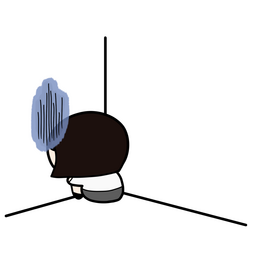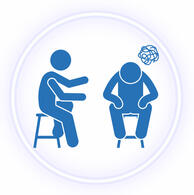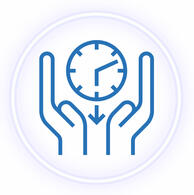Learn about self-care?

What is self-care?
“The ability of individuals, families, and communities to promote health, prevent disease, maintain health, and to cope with illness and disability with or without the support of a healthcare provider.” -WHO
Self-care covers things about improving your physical and mental health as well as how to live well. Self-care is relevant for your mental health because it can help you lower your risk of illness, manages your stress, increases your energy, and overall just makes you feel good about yourself. Keeping in mind that even small actions o taking care of yourself can leave a huge impact on your daily life.
In self-care, coping skills are a crucial element, but the two are still distinguishable. Coping skills are activities or behaviors that either come naturally to us as an instinct, or it may be things we’ve learned and picked up that we resort to when faced with difficult situations accompanied by overwhelming emotions.
Coping Mechanisms

There are multiple approaches that individuals use when encountering stress and/or traumatic events that help them to be in control of their emotional state, and these approaches are called coping mechanisms.
Yes, it happens to everyone like with their own personal issue and/or traumas, when people are scared, or a big incident happened in their life that they cannot forget, it helps us to manage our painful or difficult emotions. Coping mechanisms can help people adjust to stressful events while helping them maintain their emotional well-being.
Mental Health

Mental health focuses on the state of our minds. It can affect the way we think, feel, and act on a daily basis. It’s also a contributing factor to how we socialize with people and how we act in certain events.
"A state of well-being in which the individual realizes his or her own abilities can cope with the normal stresses of life can work productively and fruitfully, and is able to make a contribution to his or her community". -WHO
Why is self-care and
mental health so important?
Importance of self-care

Self-care encourages you to maintain a healthy relationship with yourself so that you can transmit good feelings to others. You cannot give to others what you don't have yourself. You're reinvigorating yourself so that you can be the best version of yourself for the people around you. Everyone around you also benefits from the renewed energy and joy you exhibit.
Importance of mental health

Mental and physical health are equally important components of overall health. For example, depression increases the risk for many types of physical health problems, particularly long-lasting conditions like diabetes, heart disease, and stroke. Similarly, the presence of chronic conditions can increase the risk for mental illness.
Signs and symptoms of mental illnesses
Signs and symptoms of mental illness can vary, depending on the disorder, circumstances, and other factors. Mental illness symptoms can affect emotions, thoughts, and behaviors. Sometimes symptoms of a mental health disorder appear as physical problems, such as stomach pain, back pain, headaches, or other unexplained aches and pains.
Examples of signs and symptoms include:
• Feeling sad or down
• Confused thinking or reduced ability to concentrate
• Excessive fears or worries, or extreme feelings of guilt
• Extreme mood changes of highs and lows
• Withdrawal from friends and activities
• Significant tiredness, low energy or problems sleeping
• Detachment from reality (delusions), paranoia or hallucinations
• Inability to cope with daily problems or stress
• Trouble understanding and relating to situations and to people
• Problems with alcohol or drug use
• Major changes in eating habits
• Sex drive changes
• Excessive anger, hostility or violence
• Suicidal thinking
How can you avoid these from happening?
How can you properly take care of yourself?
When you’re struggling with a distressing situation, you may need to consider which type of coping strategy to proceed with. The two types are Emotion-focused and Problem-focused.
| Emotion-focused is best used when the situation is beyond your control if the circumstances that lead you to be in that place are inevitable. It’s a way to handle your feelings in a healthy way that allows you to manage those strong emotions you have. |
| Sometimes, a problem-based approach can help. Unlike emotion-based coping, this is when the situation is under your control, it’s accomplished by identifying the source of stress and removing it from your life. |
Healthy coping mechanisms !
Healthy Emotion-Based Coping Skills
! Distract yourself
• Listen to music
• Journaling
• Think or do anything that brings you joy
• Find your "safe place"
• Take care of your body in a way that makes you feel good (paint your nails, do your hair, put on a face mask)
• Think of something funny
• Scroll through your social media accounts
• Find someone to vent/rant to
Healthy Problem-Based Coping Skills
! Confrontation
• Ask for support from a friend or a professional
• Create a to-do list
• Avoid the problem
• Establish healthy boundaries
• Leave the situation that's causing you stress
• Work on managing your time better (for example, turn off the alerts on your phone).
• Confront what's causing your problems
• Communicate




